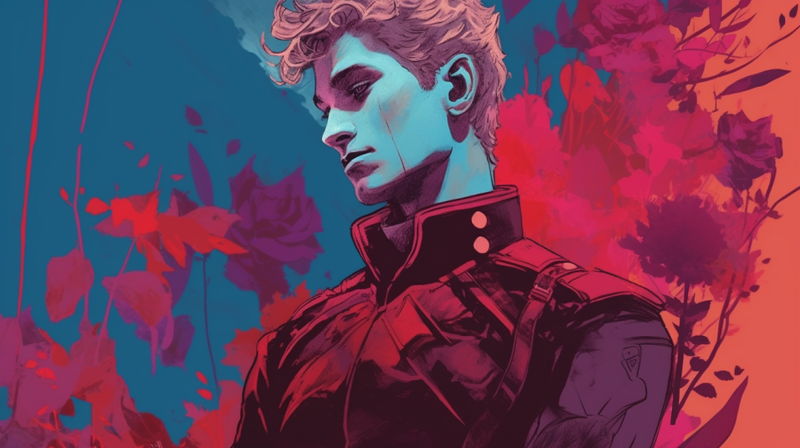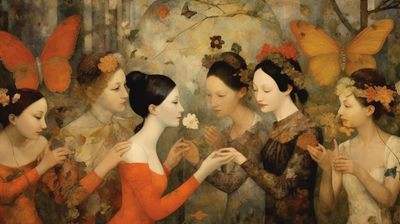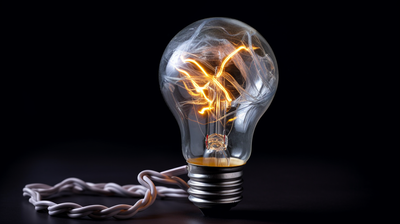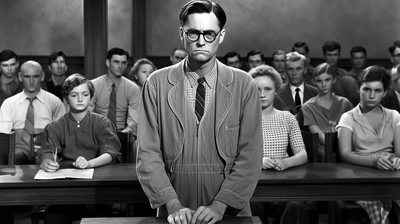The Tragic Hero: Flawed Humanity and Moral Dilemmas in Literature
In literature, the concept of the tragic hero has long captivated our imaginations and provoked contemplation on the complexities of human nature. However, as we explore the depths of this archetype, it becomes apparent that the portrayal of flawed humanity and moral dilemmas often succumbs to romanticized notions and societal conventions. In this critical analysis, I challenge conventional wisdom surrounding the tragic hero, unmasking the delusions that obscure our understanding of human nature and shedding light on the nuanced realities through historical references and intellectual rigour.

Flawed Humanity: The Illusion of Moral Ambiguity
One of the central tenets of the tragic hero archetype is the portrayal of a morally ambiguous figure, torn between virtuous aspirations and a fatal flaw. Yet, this notion obscures the fact that genuine moral dilemmas often arise from clashes between conflicting ethical frameworks, rather than individual failings. The tragic hero narrative, with its emphasis on individual flaws, conveniently absolves society of its collective responsibility for the moral predicaments faced by its inhabitants.
Consider the ancient Greek tragedians, whose works are often held as exemplars of the tragic hero archetype. In Sophocles' "Antigone," the eponymous heroine confronts the state's decree and chooses to bury her brother against the law. While Antigone is hailed as a tragic hero, we must question whether her actions were genuinely morally ambiguous or if she was merely challenging an unjust and tyrannical authority.
It is crucial to recognize that true moral dilemmas emerge from the collision of differing moral systems, where the protagonist becomes a battleground for conflicting values. By reducing these complexities to individual character flaws, we risk oversimplifying the intricate tapestry of moral decision-making, negating the broader social and cultural context that shapes our understanding of right and wrong.
Challenging Conventional Wisdom: The Myth of Tragic Nobility
Another element of the tragic hero mythos is the idea that these flawed figures possess a noble stature, elevated above the common masses. This elevation often leads to a romanticized portrayal of their dilemmas and actions, obscuring the true nature of their flaws.
Shakespeare's "Macbeth" serves as a prime example. Macbeth is commonly heralded as a tragic hero, driven to his downfall by unchecked ambition. However, a closer examination reveals a man who succumbs to manipulation, paranoia, and a toxic masculinity that precludes him from recognizing his own limitations. Macbeth's flaws do not stem from a noble pursuit of greatness, but from his inability to reconcile his personal desires with the consequences of his actions.
By perpetuating the notion of tragic nobility, we inadvertently uphold a flawed understanding of human nature, suggesting that only those of lofty station can grapple with moral dilemmas. In reality, the capacity for moral struggle and tragic choices is intrinsic to all humanity, irrespective of social status or privilege.

Unmasking Delusions: A Historical Perspective
To dispel the illusions surrounding the tragic hero, we must turn to history and examine the socio-cultural context that shaped the works of literature. By doing so, we expose the biases and limitations that often taint our understanding of flawed humanity and moral dilemmas.
Take, for instance, the Elizabethan era, during which Shakespeare's tragedies were written and performed. The prevailing theological framework of the time, heavily influenced by Calvinism, instilled a deterministic view of human nature. This deterministic lens shaped the tragic heroes of Shakespeare's plays, painting them as victims of fate rather than individuals responsible for their own actions. By dissecting the historical underpinnings, we unveil the limitations imposed upon authors and the distorted lens through which we interpret their works.
The pursuit of intellectual rigor demands that we question the prevailing narrative of the tragic hero archetype. By delving into the historical, societal, and cultural contexts, we expose the fallacies that perpetuate romanticized notions of flawed humanity and moral dilemmas.

Conclusion:
The tragic hero, with all its romanticized notions of flawed humanity and moral dilemmas, demands critical scrutiny. We must challenge the conventional wisdom surrounding this archetype, recognizing the inherent limitations in reducing moral complexities to individual character flaws. By unmasking the delusions that obscure our understanding, we can cultivate a more nuanced appreciation of human nature and moral decision-making.
As we move forward, let us discard the romanticized notions of tragic nobility and delve into the intricate fabric of societal values and ethical frameworks that shape our moral choices. By engaging critically with the tragic hero archetype, we strive to unearth the depths of human nature and embrace a more comprehensive understanding of the complex moral dilemmas that define our shared human experience.
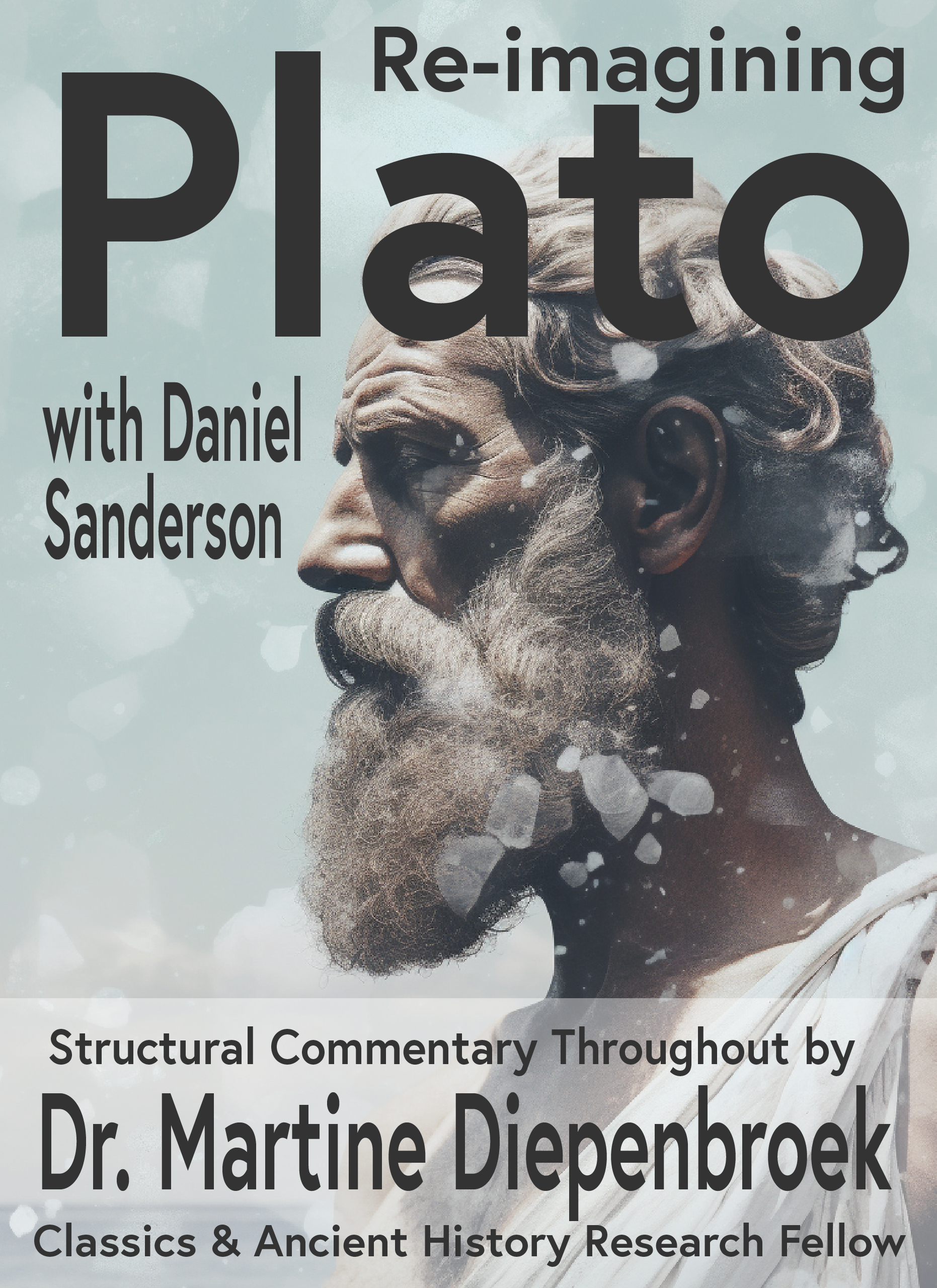
Plato Re-Imagined
This course includes 32 lectures covering most of Plato's dialogues and allowing the student to return to something divine. Divinity should resonate with secular and religious leaders alike. I present a compatible approach in my lecture on Consilience.
Also included with this course is a free book. If you pay for the course, you will get a physical copy of the book for free, mailed to your chosen address — anywhere on the planet!

